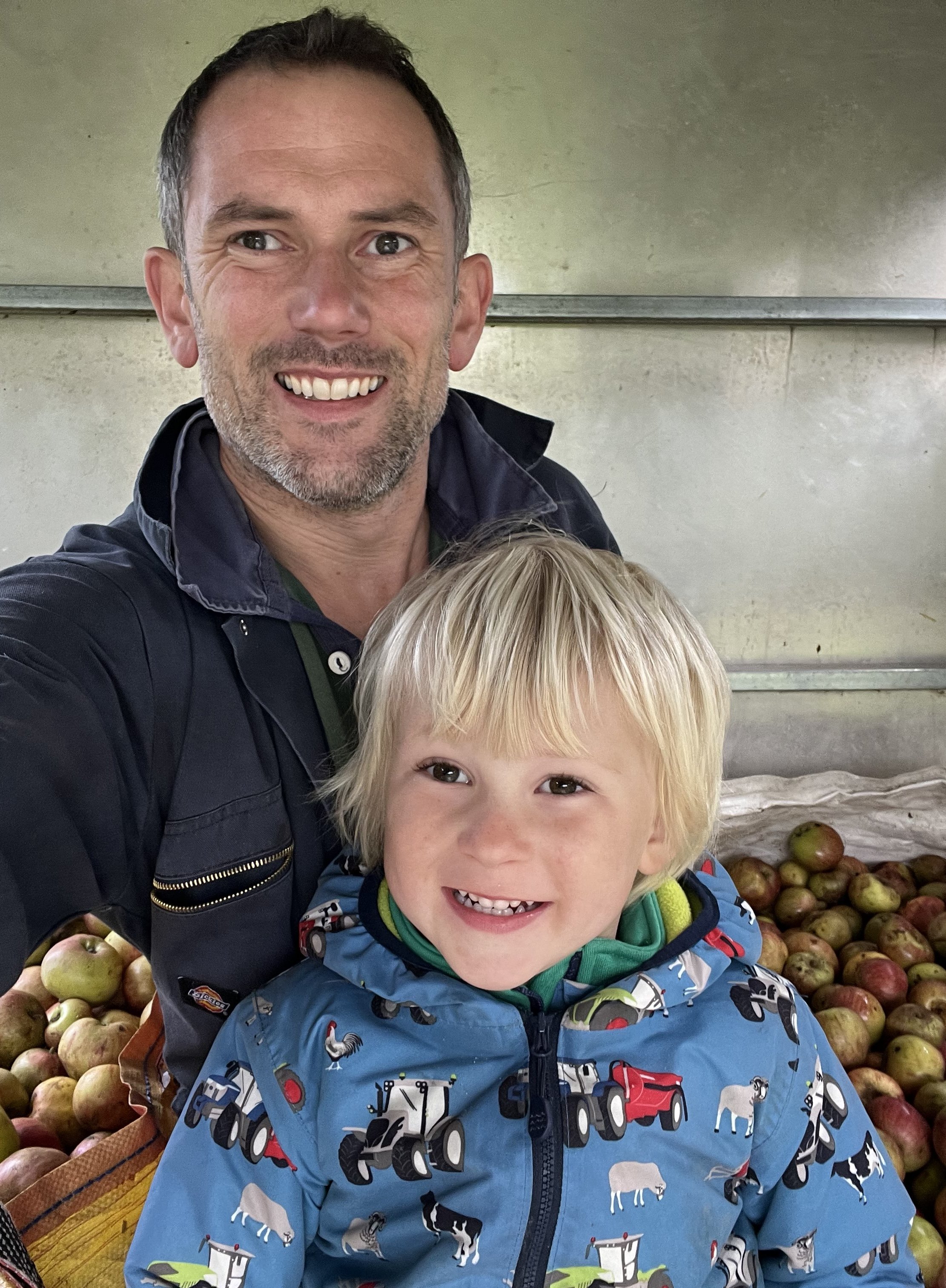Floods, Farms and Food -
How can we build resilience together?
Join us for an exciting event where a panel of six dynamic speakers will each have 10 minutes to share their compelling perspectives on today’s most pressing environmental challenges, including:
Adapting to and mitigating flood risks
Restoring and preserving biodiversity
Revitalising soil health through regenerative farming
Enhancing food security by relocalizing our food systems
After the presentations, dive into a spirited Q&A session, where your questions and ideas will fuel a lively and thought-provoking discussion.
If you’d like to attend please use the button to book tickets.
George Ford
Regenerative Farmer: Nempnett Thrubwell
A sixth-generation farmer with a first-generation spirit, George Ford, along with his family, runs Nempnett Pastures. This small family farm, nestled in North Somerset, prioritises ethical and sustainable practices. George boldly transitioned from intensive, indoor pig rearing for commodity markets to raising high-welfare beef and poultry sold directly to end consumers. Inspired by nature; Nempnett Pastures balances producing nutritious food with environmental stewardship. They showcase their dedication through open farms, farm tours, and farm feasts – all fuelled by George's passion to reconnect people with their food.
Simon Dennis
Organic Beef Farmer and Hydro specialist
Simon runs the family farm, Hollybrook Farm, an organic beef farm located in the picturesque hamlet of Hollybrook, Westbury-sub-Mendip. Hollybrook Farm produces grass fed, organic beef, which is supplied to a major supermarket, reflecting Simon's commitment to sustainable and responsible farming practices.
Simon has taken part in the Somerset Food Trail, where visitors can learn firsthand about the operations of an organic beef farm. These tours provide insights into sustainable farming practices, animal care, and the challenges and rewards of running an organic farm.
Beyond his expertise in organic farming, Simon is also a specialist in micro hydropower. He operates and maintains hydropower equipment, showcasing his versatility and commitment to renewable energy solutions. His knowledge in this field highlights his dedication to sustainability, not just in agriculture but also in energy production, contributing to a more eco-friendly and sustainable future.
Simon Dennis's dual focus on organic farming and renewable energy positions him as a leader in sustainable practices, both on his farm and within the broader community.
Jemima Western
Mendip Hills Farm Cluster Facilitator and Mendip Hills National Landscape Farm Engagement Officer
"I have a background in conventional mixed arable and livestock farming, but studied Zoology at university and achieved a masters in Evolution, Animal Behaviour and Conservation. During university it became clear to me my relatively unique position as having experience in both industries and sought to pursue a career to help bridge the gap between the two.
Currently, I am the Mendip Hills Farm Cluster Facilitator and a Farming in Protected Landscapes Farm Engagement Officer for the Mendip Hills National Landscape. These roles mean I work with farmers, land managers and other external organisations to help deliver landscape scale outcomes for the farming community, soil health, biodiversity, connectivity and climate (among others). Before this I worked for 1.5 years with farmers on the Somerset Levels with a focus on peatland, climate, and water management."
John Rowlands
Employed by the Environment Agency and their predecessors for over 40 years, John “retired” in 2021. It was a brief retirement with offers of work coming from Farming and Wildlife Advisory Group (Water Management Advisor) and the Somerset Rivers Authority (Technical Advisor). In 2023 he set up his own company John Rowlands Consultancy whose clients include for Natural England, Royal Society for the Protection of Birds, Somerset Drainage Boards Consortium and North Somerset Council.
Married for 40 years, he lives on a hill in Somerset with his wife, two dogs and a cat. Whatever it is, the way you tell your story online can make all the difference.
Jen Hunter
Fernhill Farm Experience
“My partner Andrew Weir and I, have created a unique opportunity to develop a rural family business as the ‘Fernhill Farm Experience’, opening the gates to welcome day visitors and guests to stay at our award-winning eco farm. We mob graze our FLERDS across Mendip Hills in Somerset, to build biodiversity naturally, using livestock in nomadic rotations that create maximum animal impact from minimal soil disturbance. Multi-purpose sheep genetics provide nutrient dense, mature sheep meats alongside British wool yarns, felts, gifts, clothing and accessories, supplying artisans and UK brands with verified regenerative meat, wool and leather fabrics.”
Graham Harvey
An agriculture graduate, Graham joined Farmers Weekly in the 1970s. As a freelance he wrote for many publiations including the Daily Mail, New Scientist, and Private Eye. His first book, The Killing of the Countryside, won a top prize for environmental writing. Other books include We Want Real Food and Grass-Fed Nation. His latest is Underneath The Archers. He joined the writing team of The Archers in 1984 and has written more than 600 episodes. In 2018 his one-woman show No Finer Life was performed across the UK. In 2019 he co-wrote the musical The Shearing Gang. He is co-founder of the Oxford Real Farming Conference.
And our Host for the evening:
Stewart Crocker
Sustainable Food Somerset
Stewart’s early career in farm management gave him first-hand experience of the adverse impact of agrichemicals on the natural environment and underpinned his conversion to organic farming.
He subsequently worked for a range of environmental and international development organisations, including the Soil Association and Friends of the Earth, of which he was appointed Vice Chair until 2016.
Stewart’s enthusiasm for empowering community action prompted him and others to create Wells Food Network as a member organisation of the national network of Sustainable Food Places. The organisation has recently merged with Somerset Community Food to become Sustainable Food Somerset, of which Stewart Chairs the Board.







